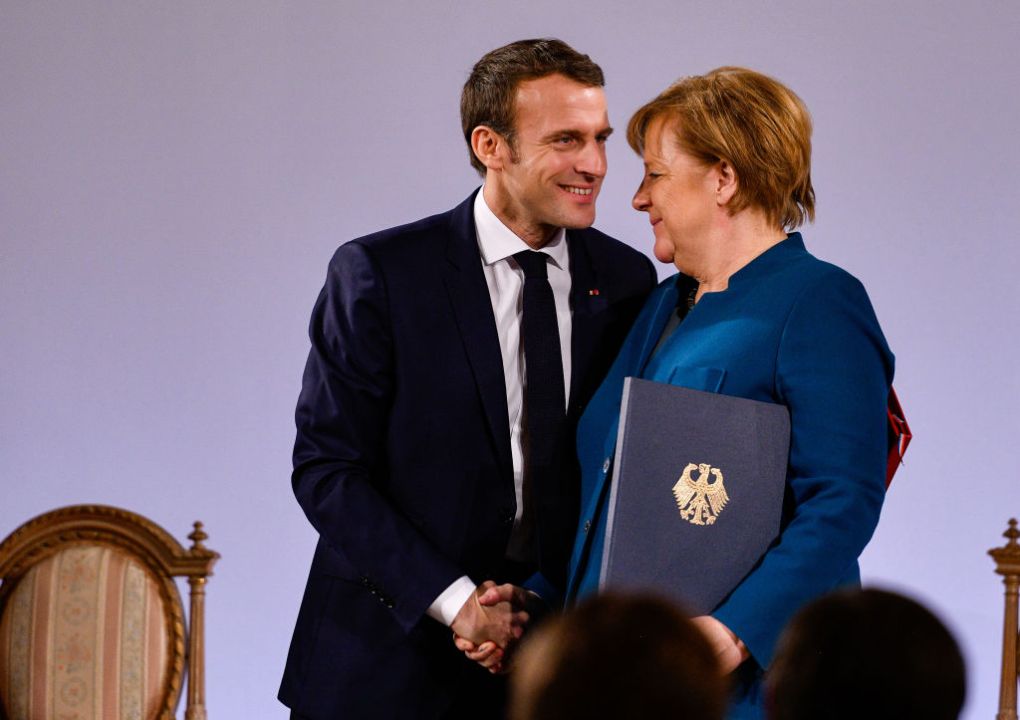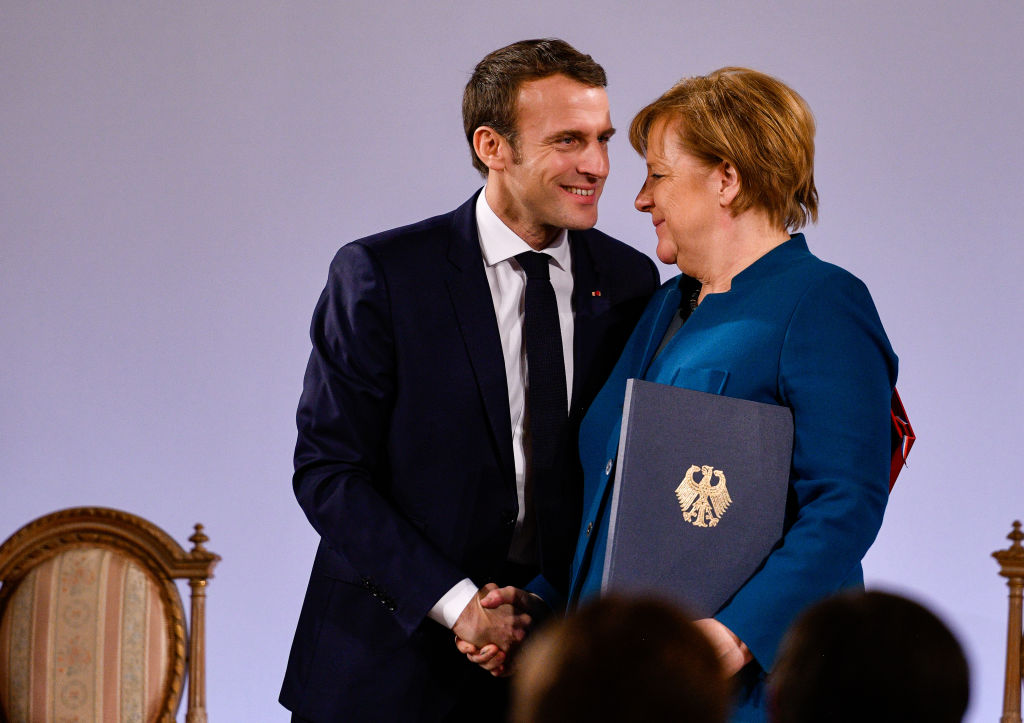Emmanuel Macron spoke for three hours, almost without pause, at the first of his grand débats national in Normandy last week, in an attempt to respond to recent protests, while 8,000 policemen kept the gilets jaunes at bay. Yesterday, in the splendour of the Palace of Versailles, Macron hosted scores of international business leaders, many on their way to Davos, to reassure them that France was open for business. They were polite but it is fair to say sceptical, having seen on television the Porsches of bankers burning on the streets of Paris.
Today the peripatetic president is with Angela Merkel in the German city of Aachen, known still to the French as Aix-la-Chapelle, Charlemagne’s capital. In an elaborately staged love-in, in which he will share his thoughts on the future of Europe, doubtless at length, he is signing a new treaty that will bind the French and Germans in even closer embrace, with commitments to further integrate their political, economic and defence relationships.
The symbolism of the venue is heavy. Aachen was the centre of the Frankish empire, whose frontiers were not dissimilar to those of the original European Community. Three previous treaties have been signed there. In 812, when the Byzantines recognised the Carolingian Empire; in 1688, ending the war of devolution between France and Spain; and in 1748, ending the war of the Austrian succession. It was also the first German city liberated in the Second World War, by the Americans, in 1944.
So what is this latest, fourth, treaty of Aachen? It depends on your point of view. Macron and Merkel will declare it a reaffirmation and strengthening of their fundamental special relationship. Others in the EU will consider it a naked attempt by the two to utterly dominate the EU for the foreseeable future, especially now the British, the only possible counterweight, are leaving. And in France, by many people on the left and right, the treaty is seen as a fundamental betrayal of national sovereignty.
Maybe none of these views are quite right. These are not two mighty leaders, carving up Europe, but two weak leaders with tenuous authority at home attempting to preside over a union as divided as it has been in many years. The Europe they seek to dominate is fractious. As for the nationalist arguments in France (and Germany) that their countries have been sold out beneath them, it is not right that France is ceding Alsace to Germany, nor that Germany is really ever going to treat France as an equal partner. There is possibly less to this treaty than meets the eye.
In France, more than ever, Macron looks cornered, manic, besieged with scandal, his reform program derailed, increasingly reliant on muscular policing to maintain order, and as far removed from French sentiment as ever. He is strongly supported by only five per cent of voters, with another 20 per cent reasonably favourable, and more than 70 per cent opposed. Merkel is also a diminished figure; Germany an unsettled nation. The political fault lines are deep in both countries with resurgent oppositions. Both economies are stressed, France more than Germany’s.
It is fair to say that in France, very few people outside the political and media elite are paying much attention to the president at the moment, other than with contempt. The gilets jaunes have been weakened by mass arrests but are still active and planning yet another weekend of protest, the 11th in a row. Posturing with his German and European friends in grand settings, Macron is unable to go out on the street. His most recent outings have resulted in PR disasters in which he has insulted voters, and since the gilets have been active, he dares not appear in public at all.
The last ten weeks have revealed France at its ugliest and most incapable of addressing its problems or agreeing a project. The country is only less divided than Britain and the United States because, in France, a majority is united against a president who may be a brilliant intellectual, but has no political intelligence whatsoever. The country’s opposition is, however, utterly incoherent, with an impossible shopping list of demands, no clear leaders, fuelled only by anger.
Jonathan Miller is the author of France a Nation on the Verge of a Nervous Breakdown (Gibson Square). He tweets at @lefoudubaron








Comments